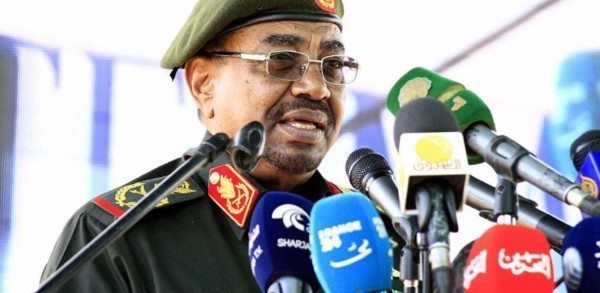
The Obama administration plans on easing sanctions against Sudan as part of a larger effort to initiate limited talks with the government in Khartoum, the Associated Press reported Thursday.
The White House will make the announcement on Friday.
The State Department designated Sudan as a State Sponsor of Terrorism in 1993 “due to concerns about support to international terrorist groups.” It currently retains that designation. Sudan’s President Omar al-Bashir, who came to power in 1989 after leading a military coup against the country’s democratically elected leader, has been elected to office three times through corrupt election practices, voter intimidation, and violence.
In 1998, President Clinton directed air strikes against Sudan after al-Bashir’s Islamist-oriented government provided a safe have to Osama Bin Laden.
In March 2009, al-Bashir became the first sitting president to ever be indicted with war crimes by the International Criminal Court (ICC). Al-Bashir is accused of directing mass killing sprees, massacres, and gang-rapes against his own civilians in Darfur.
To this day, Sudan is a mecca for jihadists. As the the State Dept. itself acknowledges, “elements of al-Qa’ida-inspired terrorist groups” remain operative in the war-ravaged country.
Further, the department’s active travel warning for US citizens raises concerns Sudan’s deteriorated security situation:
Terrorist groups remain present in Sudan and are intent on harming Westerners and Western interests. Terrorist actions may include suicide operations, bombings, shootings, or kidnappings. The threat of violent crime targeting Westerners, including kidnappings, armed robberies, home invasions, and carjackings is particularly high in the Darfur region.
And here’s an excerpt from the State Department’s Sudan 2015 Human Rights Report:
Government forces, government-aligned groups, rebels, and armed groups committed human rights abuses and violations throughout the year. The most serious human rights abuses and violations included: indiscriminate and deliberate bombings of civilian areas; ground attacks that included the killing and beating of civilians, sexual and gender-based violence, forced displacement, looting and burning entire villages, and destroying the means necessary for sustaining life; and attacks on humanitarian targets, including humanitarian facilities and peacekeepers.
Other major abuses included: extrajudicial and other unlawful killings; torture, beatings, rape and other cruel or inhuman treatment or punishment; arbitrary arrest and detention by security forces; harsh and life-threatening prison conditions; incommunicado detention; prolonged pretrial detention; obstruction of humanitarian assistance; restrictions on freedom of speech, press, assembly, association, religion, and movement; and intimidation and closure of human rights and nongovernmental organizations (NGOs). Societal abuses included discrimination against women; sexual violence; female genital mutilation/cutting (FGM/C); use of child soldiers; child abuse; sexual exploitation of children; trafficking in persons; discrimination against ethnic and religious minorities, persons with disabilities, and persons with HIV/AIDS; denial of workers’ rights; and child labor.
Nonetheless, the Obama administration has begun considering the war criminal a potential partner in the war against terror.
According to the White House, Sudan’s increased efforts to expel ISIS elements from the country over the last few months largely factored into its decision to ease sanctions.
“Sudan’s changes have largely occurred below the radar. But the U.S. credits the country with limiting travel of ISIS militants and shifting toward greater alignment with Saudi Arabia, and less with Iran,” explained AP. “Israel also has pressed the U.S. to adopt a friendlier relationship with Sudan after it cracked down on shipments of suspected Iranian weapons to groups hostile to the Jewish state.”
Sudan’s improvements on humanitarian access to civilians and its refusal to harbor South Sudanese rebels were also cited as justifications for US rapprochement.
“The White House is expected to announce an easing of sanctions on Friday as part of a five-track engagement process, said the officials, who weren’t authorized to speak publicly on the matter and demanded anonymity,” reported AP. “They said the administration will keep in place the broad set of economic and financial sanctions Sudan faces as a result of its “state sponsor of terrorism” designation. The penalties being suspended by the policy change could be re-imposed if Sudan backtracks on the progress it has made, they added.”
The Obama administration’s newfound friendliness toward Khartoum was hinted at in late September when spokesman John Kirby issued a spontaneous, seemingly out-of-blue statement praising “Sudan’s recent efforts to increase counterterrorism cooperation with the United States.”
President-elect Donald Trump has yet to outline a policy on Sudan. It’s unclear if his administration will adopt Obama’s last-minute diplomatic posturing come January 20.
Source: The Daily Wire
